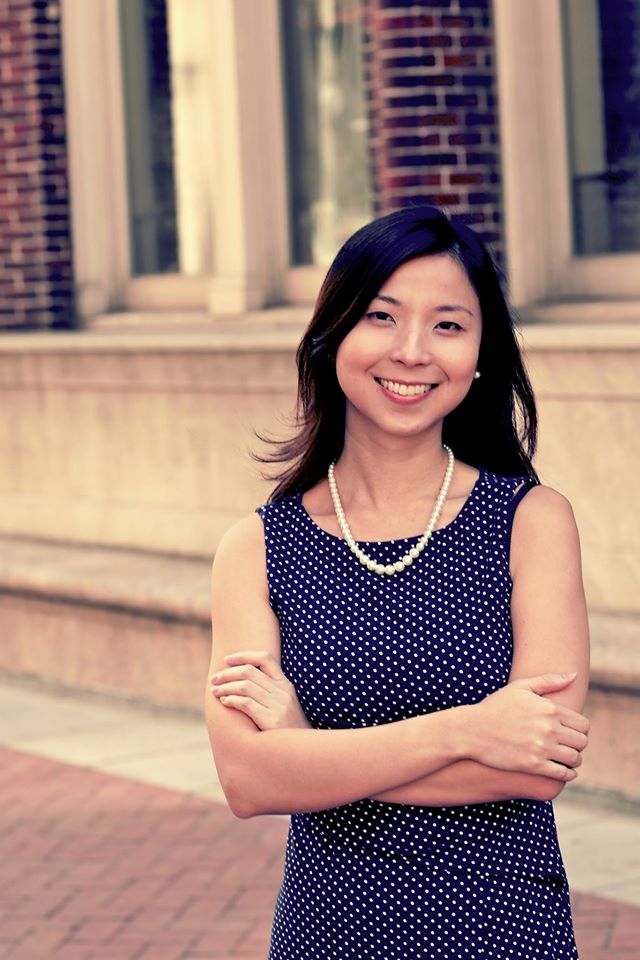NBS’ first SSHR Fellowship awardee
Assistant Professor Charlene Chen Yijun was recently awarded The Social Science and Humanities Research (SSHR) Fellowship. It is also the first time that a faculty from Nanyang Business School (NBS) has received the Fellowship.
Launched in 2018, the SSHR Fellowship is an important addition to the Singapore Ministry of Education's scholarship and grant ecosystem. It is part of the Social Science Research Council's (SSRC) efforts to nurture local talent, and strengthen the social science and humanities research ecosystem in Singapore. Through the provision of a research grant, the Fellowship helps to develop research expertise as well as build up the research careers of local talent.

Assistant Professor Charlene Chen
"I feel very honoured to be given this chance to pursue something I am passionate about. It is a big amount of money, so I feel a huge sense of responsibility to do the research funds justice, by putting it to good use. I also feel excited to be able to embark on a new research stream that has the potential to have meaningful impact on society. And of course, I feel tremendous pride in clinching this for NBS!" shared Asst Prof Chen.
For the next five years, Asst Prof Chen will be working on the topic "The truth about socio-economic inequality in people's everyday lives: How it affects the way people think, feel and behave in their natural environment".
When asked how Asst Prof Chen came about with this research topic, she said in recent years social inequality in Singapore has emerged as one of the hot button topics, with mass media amplifying related issues. Asst Prof Chen and her co-investigator, Professor Andy Yap from INSEAD also felt that this was a timely issue and fit quite nicely with their research backgrounds — focusing on status perceptions, status motivations and social comparison. As a scholar on psychological well-being, she wanted to understand how Singaporeans' perceptions of inequality impact their subjective well-being and life satisfaction.
Asst Prof Chen believes that people generally understand a lot about inequality from the fields of economics, sociology, and education. However, this topic has been understudied in the psychology literature, as in the recent years, scholars have been calling for a greater need to examine this issue from a psychological lens.
"There are many psychological factors that influence how people experience inequality in their lives. Without fully comprehending these mechanisms, one would not be able to mitigate the adverse consequences of inequality on people's well-being," says Asst Prof Chen.
"The understanding of inequality in Singapore is even more limited. Apart from the excellent work done by our sociology colleagues, very little is known about how the wider population view and experience inequality. I hope this work will shed a light on Singaporeans' experiences of inequality in Singapore and help shape some interventions that could alleviate problems associated with inequality in Singapore."
The current COVID-19 pandemic has brought to light the issue of socioeconomic inequality in Singapore. Asst Prof Chen feels the pandemic has amplified the divide and revealed how vulnerable Singapore is with regard to the inequality gap. Hence, her short-term plan is to use the current crisis as a lens to gather insights on the topic and even collect some data during this time. Through the data, Asst Prof Chen aims to find some initial answers to what the antecedents and consequences of perceived inequality in Singapore are, and how can we alleviate some of the negative consequences. She hopes that in the long-term, her research will spark meaningful and constructive discussions with various stakeholders on how we can improve Singaporeans' well-being.
When asked how she would manage her time for this research, along her teaching and personal life, Asst Prof Chen replied that recruiting a good and competent research team - comprising post-doc, PhD students and research assistants – and proper delegation of tasks help her manage her time.
The biggest challenge Asst Prof Chen foresees is the recruitment of participants and organisations. Given that the objective of the project is to understand Singaporeans' experiences of inequality, the usual method of operating by using university undergrads and online participants from portals, such as Amazon's Mechanical Turk and Prolific as research participants, would not apply. Coordinating and tracking data collection efforts will also be challenging. To overcome these challenges, she intends to put on her marketing hat when it comes to recruiting participants and organisations, and seek advice from her senior colleagues who have experience in data collection.
Associate Professor Catherine Wan and Associate Professor Krishna Savani have been assigned to jointly mentor Asst Prof Chen in her research.
"I am very happy to be assigned these mentors. I have known Prof Krishna since my days in Columbia University – I was a PhD student and he was a post-doctoral fellow at Columbia Business School. Prof Krishna is a prolific and excellent scholar with the same psychology and business school background and I am very excited to finally have the chance to work with him. I am also looking forward to work with Prof Wan, given her expertise in psychology research on social identity and intergroup processes. I believe I will gain a lot from these mentors in terms of the intellectual output of the grant research. They will have great ideas related to the conceptualisation, methodology, and publishing of the research — the practical aspects of managing the grant, as well as dealing with the stress associated with it," says Asst Prof Chen.
NBS is excited to see the outcome of Asst Prof Chen's research, and how it will positively impact our society. All the best to Asst Prof Chen in her research journey!














/enri-thumbnails/careeropportunities1f0caf1c-a12d-479c-be7c-3c04e085c617.tmb-mega-menu.jpg?Culture=en&sfvrsn=d7261e3b_1)

/cradle-thumbnails/research-capabilities1516d0ba63aa44f0b4ee77a8c05263b2.tmb-mega-menu.jpg?Culture=en&sfvrsn=1bc94f8_1)

7e6fdc03-9018-4d08-9a98-8a21acbc37ba.tmb-mega-menu.jpg?Culture=en&sfvrsn=7deaf618_1)
